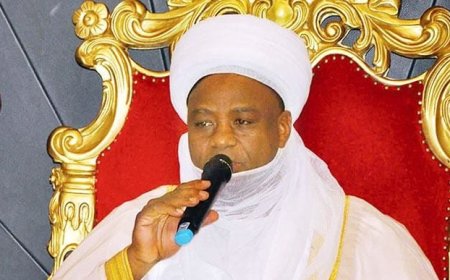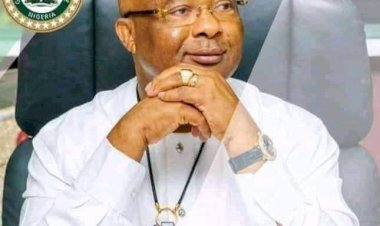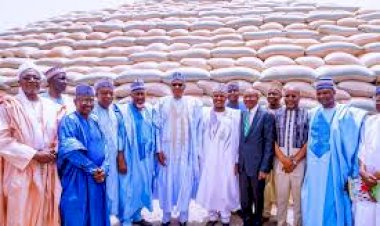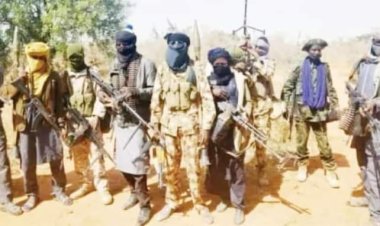vorian presidential election: the candidatures of Laurent Gbagbo and Guillaume Soro officially submitted
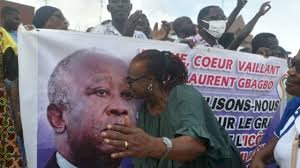
Demonstration by supporters of former President Laurent Gbagbo, in Abidjan, August 31, 2020. SIA KAMBOU / AFP
The candidatures for the presidential election of October 31 in Côte d’Ivoire by ex-president Laurent Gbagbo, still in Belgium, and ex-rebel leader and ex-prime minister Guillaume Soro, who resides in France, have been submitted, Monday, August 31, by their supporters at the Independent Electoral Commission (CEI) in Abidjan.
These heavyweights of political life have both been struck off the electoral lists due to convictions by the Ivorian courts and it is unlikely that the Constitutional Council will validate their candidacies.
Read also For Henri Konan Bédié, the next election may lead Côte d’Ivoire to “major unrest”
President Alassane Ouattara, 78, and ex-President Henri Konan Bédié, 86, had already submitted their cases last week. The CEI therefore received the candidatures of the four main protagonists of the post-electoral crisis of 2010-2011. Because MM. Ouattara, Bédié and Gbagbo, 75, were in contention in the first round in 2010, when Mr. Soro was the leader of the rebellion, then master of the north of the country for eight years. Mr. Gbagbo’s refusal to admit his defeat to Mr. Ouattara in the second round had triggered a crisis that had left 3,000 dead.
“Heavy responsibility”
“We have just submitted the file of our political referent, President Laurent Gbagbo, the father of democracy in Côte d’Ivoire,” said Georges-Armand Ouegnin, president of the platform Together for Democracy and Sovereignty (EDS) on leaving the CEI, accompanied by Michel Gbagbo, son of the former president.
Laurent Gbagbo, who has never yet spoken publicly on his candidacy, is still on parole in Belgium, pending a possible appeal before the International Criminal Court (ICC), which acquitted him in first instance of the charge of crimes against humanity. But he is under a sentence in January 2018 to twenty years in prison by the Ivorian justice for the so-called “hold-up of the BCEAO”, the Central Bank of West African States, during the 2010-2011 crisis.
Article reserved for our subscribers Read also Ivory Coast: Alassane Ouattara’s investiture to run for a third term sparks violence in the country
“The Constitutional Council will have the heavy responsibility, before the Ivorian people and history, to pronounce on the validity of the delisting” and to rule on the eligibility of Mr. Gbagbo, launched Mr. Ouegnin. He called for an “international audit” of the electoral lists and demanded “the release of all political prisoners” and the “return of political exiles with, at their head, Laurent Gbagbo”. Hours later, it was the turn of Mr. Soro’s supporters to nominate their leader and speak in similar terms.
“The Constitutional Council will have the heavy responsibility of ensuring respect for fundamental rights and, above all, of validating the candidacies”, declared a spokesperson, Aminata Koné-Zié, referring to “numerous legal tricks orchestrated to prevent this candidacy and make our president [Soro] ineligible ”. Mr. Soro was sentenced in Ivory Coast in April 2020 to 20 years in prison for “concealment of embezzlement of public funds”. “He was the first declared candidate, which earned him the wave of attacks (…) This citizen act is a matter of bravery (…) Our president firmly nurtures the ambition to gain access to power peacefully and truthfully. », She insisted.
Fear of violence
Candidates had until midnight Monday to submit their case. Among the many candidacies submitted on Monday are those of former minister Abdallah Albert Mabri Toikeusse, Mamadou Koulibaly, the former president of the National Assembly under the mandate of Mr. Gbagbo, the former prefect of Abidjan Vincent Toh Bi Irie or even Marie Carine Bladi, ex-runner-up of Miss Côte d’Ivoire.
The IEC expects to receive around 40 cases in total, some of them “wacky”, according to its secretariat. The Constitutional Council then has fifteen days to publish the list of validated candidatures.
Read also In Ivory Coast, Alassane Ouattara most certainly presidential candidate “in spite of himself”
Ten years after the post-election crisis, fear of violence in the run-up to the October 31 poll is strong. The announcement that Mr. Ouattara had decided to run for a third term indeed sparked protests that escalated into violence that left some 15 people dead in August.
Like the previous one, the 2016 Constitution limits presidential terms to two. If the supporters of Mr. Ouattara claim that the change of Constitution has reset the counter to zero, his opponents deem this third candidacy unconstitutional.
On Monday, the head of the Catholic Church of Côte d’Ivoire, Cardinal Jean-Pierre Kutwa, estimated that Mr. Ouattara’s candidacy for a third term was “not necessary”, calling for “calm” and “Organize the elections in a peaceful environment”.
The World with AFP































